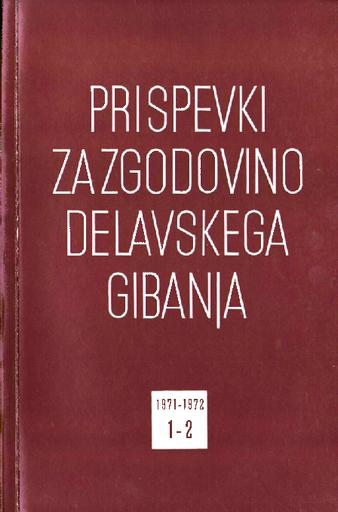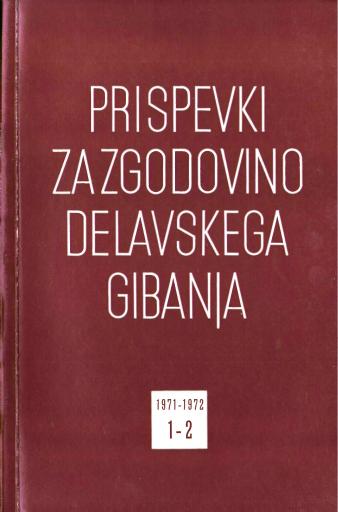/
Serijske publikacije
/
Prispevki za novejšo zgodovino
Narodnoosvobodilni boj in slovenska kulturna tradicija

Datoteke (1)

Opis
The treatise is based on some of the chapters from the author's book »The History of Slovene Literature«, volume 7, and describes the relationship between the National War of Liberation and cultural tradition. The author believes that the new culture is the heritage of all that was beautiful and great in our cultural past. The relationship between the National Liberation Movement and the Slovene cultural past in summed up, especially the strengthening of cultural tradition during the War of Liberation — e. g. the growth of popular songs of the Liberation Movement and War from songs sung before the war. Partisans and activists chose their names (Iztok, Matjaž, Peter Klepec, Črtomir) from the works of cultural classics. Five partisan brigades and some underground presses were named after Slovene classic writers; on the anniversaries of their births and deaths, brochures, song-books and anthologies of Gregorčič, Jurčič and Cankar were published. The highest respect was paid to Prešeren. The anniversaries of his birth and death were celebrated in the whole of Slovenia' and the presidium of SNOS (Slovene National Liberation Council) proclaimed the day of his death a Slovene cultural holiday. The second part of the treatise demonstrates by examples how, during the National War of Liberation, folk songs were given new or partly changed texts and melodies, without losing the characteristics of folk songs. The treatise also presents songs which grew from the revolutionary feelings of the Party workers and sympathizers of the revolutionary movement and were sung even before the war.
Metapodatki (11)
- identifikatorhttps://hdl.handle.net/11686/3969
- naslov
- Narodnoosvobodilni boj in slovenska kulturna tradicija
- The National War of Liberation and the Slovene Cultural Tradition
- ustvarjalec
- Viktor Smolej
- soavtor
- Tone Ferenc (odg. ur.)
- France Filipič (diskut.)
- predmet
- NOB
- druga svetovna vojna
- Slovenija
- kulturna zgodovina
- kultura
- opis
- The treatise is based on some of the chapters from the author's book »The History of Slovene Literature«, volume 7, and describes the relationship between the National War of Liberation and cultural tradition. The author believes that the new culture is the heritage of all that was beautiful and great in our cultural past. The relationship between the National Liberation Movement and the Slovene cultural past in summed up, especially the strengthening of cultural tradition during the War of Liberation — e. g. the growth of popular songs of the Liberation Movement and War from songs sung before the war. Partisans and activists chose their names (Iztok, Matjaž, Peter Klepec, Črtomir) from the works of cultural classics. Five partisan brigades and some underground presses were named after Slovene classic writers; on the anniversaries of their births and deaths, brochures, song-books and anthologies of Gregorčič, Jurčič and Cankar were published. The highest respect was paid to Prešeren. The anniversaries of his birth and death were celebrated in the whole of Slovenia' and the presidium of SNOS (Slovene National Liberation Council) proclaimed the day of his death a Slovene cultural holiday. The second part of the treatise demonstrates by examples how, during the National War of Liberation, folk songs were given new or partly changed texts and melodies, without losing the characteristics of folk songs. The treatise also presents songs which grew from the revolutionary feelings of the Party workers and sympathizers of the revolutionary movement and were sung even before the war.
- založnik
- Inštitut za zgodovino delavskega gibanja
- datum
- 1971
- tip
- besedilo
- jezik
- Slovenščina
- jeDelOd
